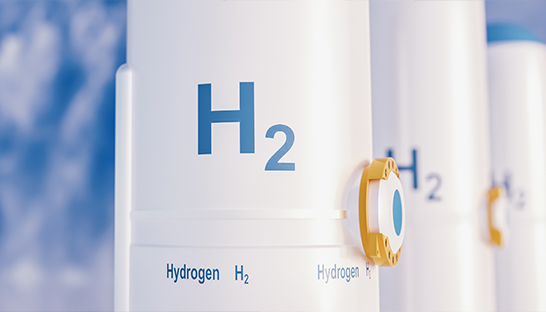The road towards net-zero solutions
01 Feb 2021
Shipping is clearly starting down a path towards decarbonisation, which has become a demanding reality and not a noble dream, and we are deeply involved across all markets with the goal of giving confidence to decarbonisation solutions and guaranteeing ROI for each stakeholder through our role of industry chain facilitator and integrator.
Ships and ports can play a major role in the global spread of new solutions for decarbonisation and with energy efficiency, new energy vectors and carbon capture already on the table, some have already been addressed and others are in progress. MEPC 75 adopted amendments to Marpol Annex VI on the energy efficiency of existing ships and introduced the EEXI and CII’s, which complement the requirements for new building ships through EEDI.

Hydrogen is a valuable energy vector for storing intermittent renewable energy to be transferred to sectors unable to reduce their CO2 emissions in meaningful and practical ways. As a fuel, it is a promising option due to its carbon-free content, wide flammability limits and fast flame speeds. It’s extreme resistance to knocking and high auto ignition temperature makes it an excellent choice for spark ignition (Otto) engines with increased compression ratios. It also has very low ignition energy in air and a very high diffusion coefficient, with a homogeneous hydrogen-air mixture being formed more readily than with other conventional fuels. This results in very high burning velocity, about six times higher than that of ordinary HC fuels.
On the contrary, methane (LNG) has very slow burning velocity, leading to disadvantages in the Otto cycle such as low thermal efficiency, large cycle-by-cycle variation, and poor lean-burn capability, all of which decrease engine power output and increase fuel consumption. The addition of premixed hydrogen increases the degree of constant volume combustion, resulting in faster and more complete combustion, with reduced cyclic variations. A fuel mixture of 20% H2 + 80% NG yields higher thermal efficiency and less THC emissions (=methane slip) than if running only on pure natural gas.
The ultimate goal of hydrogen economy is to replace fossil fuels with clean burning hydrogen, and natural gas is the best route to ensuring its smooth introduction into the fuel mix for the transportation and energy sectors without requiring breakthrough changes in available engine technology. The progressive addition of hydrogen to natural gas supports and future proofs the adoption of natural gas as a marine fuel today, meaning natural gas is not a bridge fuel, but the starting point on the road to a future fuel. RINA acted as consultant on a prime example project aimed at improving the environmental sustainability of marine vessels: ‘ZEUS’, Fincantieri’s Zero Emission Ultimate Ship, a first-of-its-kind experimental vessel with a 130-kilowatt fuel cell facility, powered by approximately 50 pounds of hydrogen contained in 8 metal hydride cylinders.